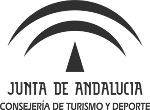Improvement of physical performance, hormonal profile, recovery-stress balance and increase of muscle damage in a specific futsal pre-season planning
Abstract
The aim of this study was to verify the effects of a specific pre-season planning on physical performance, recovery-stress state, hormonal and muscle damage markers in high-level futsal players.
MethodFifteen male futsal players, members of a high level Brazilian futsal team participated in this study. Before and after four weeks of pre-season, blood samples were collected, the Recovery Stress Questionnaire for Athletes was applied, and vertical jump tests and Yo-Yo Intermittent Recovery Level 2 tests were performed. The Internal Training Load was measured in all training sessions. Repeated measure ANOVA was used to compare the Total Weekly Training Load between different weeks. To compare the differences between pre- and post-training of all other dependent variables (except the Recovery Stress Questionnaire for Athletes scales) the Student's t-test and the magnitude based inference were used.
ResultsThe futsal pre-season improved performance in the Yo-Yo Intermittent Recovery Level 2 and Squat Jump tests. The improvement in performance tests was accompanied by an increase in testosterone, creatine kinase, testosterone/creatine kinase ratio and in the majority of the Recovery Stress Questionnaire for Athletes scales. Cortisol and the social recovery and general well-being of Recovery Stress Questionnaire for Athletes scales decreased during the futsal pre-season.
ConclusionsIn summary, players improved their performance in the Yo-Yo Intermittent Recovery Level 2 and Squat Jump tests in response to a futsal pre-season. Furthermore, the Internal Training Load behavior of the futsal training promoted a favorable hormonal anabolic environment and did not promote a negative disturbance in creatine kinase or stress/recovery balance, suggesting that futsal players did not report fatigue accumulation after this pre-season design.


